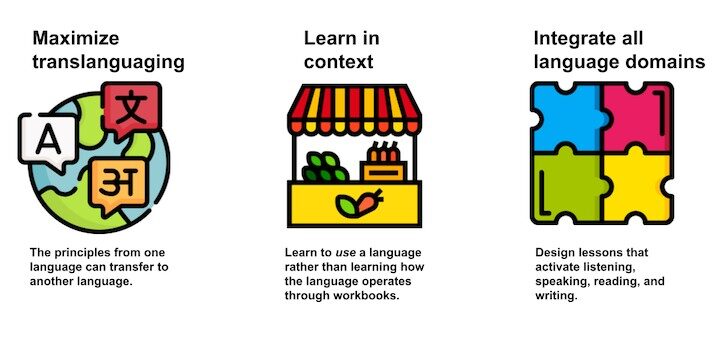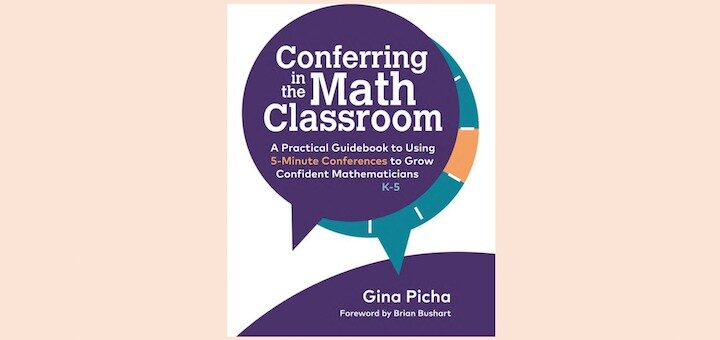Teaching and learning in grades 4-8
Fisher and Frey’s “Leader Credibility” provides a roadmap to strengthening leadership skills. It outlines traits of those who engage, inspire and transform and offers guidance on the essentials of trust, competence, dynamism, forward thinking and more, says Cathy Gassenheimer.
Linda Rief’s Whispering in the Wind shows how poetry helps us listen to the voices of others and allows us to share our voices. She offers practical advice, concrete examples, and specific resources to expand the teaching of poetry by creating “Heart Books,” writes ELA teacher Kasey Short.
As language specialist Tan Huynh learns Khmer, his 6th language, he looks into language acquisition as a skill, not a superpower. He suggests teachers support students’ multilingualism by maximizing translanguaging, learning in context, and integrating all language domains.
After trying without success to teach students how to decode word problems, Michelle Russell turned to research. A math journal article pointed to an ELA strategy: visualizing, retelling, making connections, and asking questions. Learn about her promising first experiment.
Like much of the current K-12 universe, Sarah Cooper is both excited and concerned about the impact of ChatGPT’s disruptive technology. Recently she checked in with her 8th graders for insights into how they might use it and how they think AI may impact their lives in the future.
Gina Picha’s book offers advice, examples and resources for brief math conferences that focus on listening and observing, naming students’ strengths, and encouraging them to share ideas. Fifth grade math teacher Kathie Palmieri finds it a practical, easy-to-implement guide.
Star Sackstein’s Assessing with Respect is about focusing on meeting students’ SEL needs and how that allows us to work with them on greater academic achievements. She effectively discusses the theory of CASEL competencies and their implementation, writes NBCT Megan Balduf.
Do you spend time every day doing repetitive email and typing tasks at school – time you don’t have to spare? If so, like Bill Murray in the classic comedy, you’re stuck in your own endless Groundhog Day cycle. Time management expert Frank Buck is here to break you out.
We all know “that” student who arrives late, avoids homework, ignores class. School psychologist Katelyn Oellerich shares why rote punishment doesn’t solve the problem or help students learn. Instead, she recommends, apply logical consequences that students will understand.
When these five strategies are woven throughout a routine, they work in tandem to keep the focus on mathematical thinking, promote student-to-student discourse, and create multi-modal processing opportunities for those with learning disabilities, Kelemanik and Lucenta write.










































